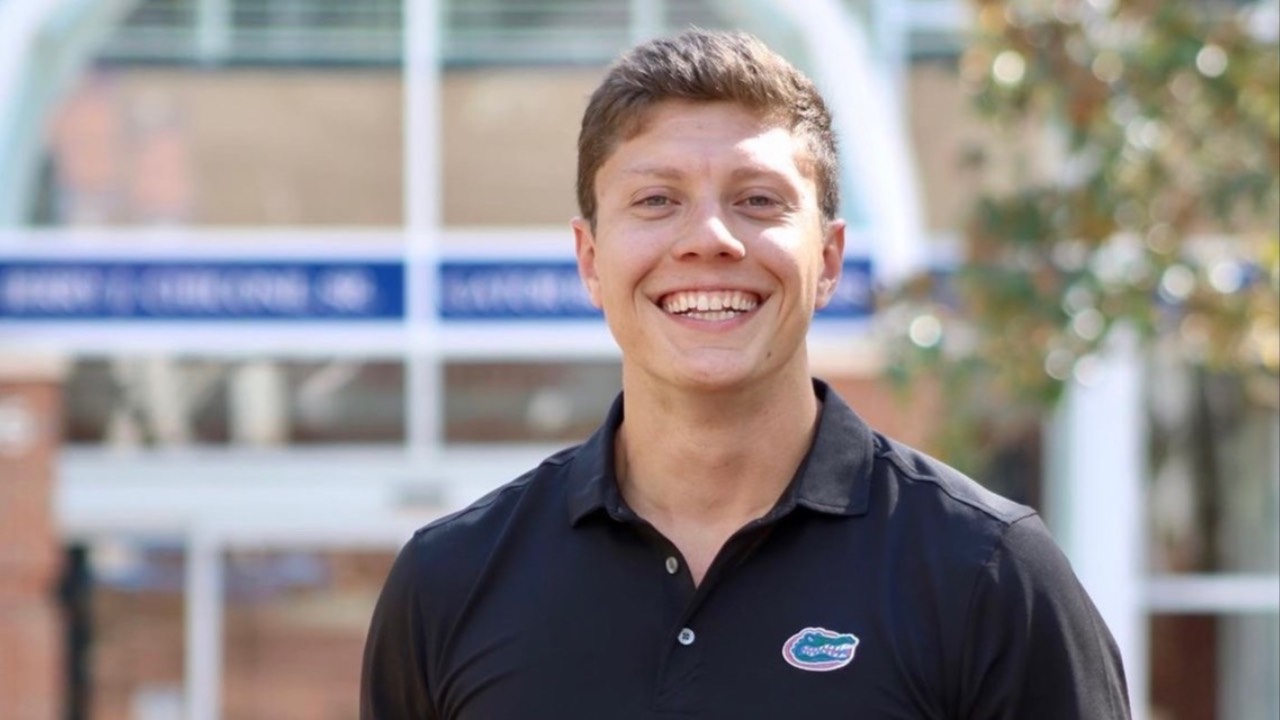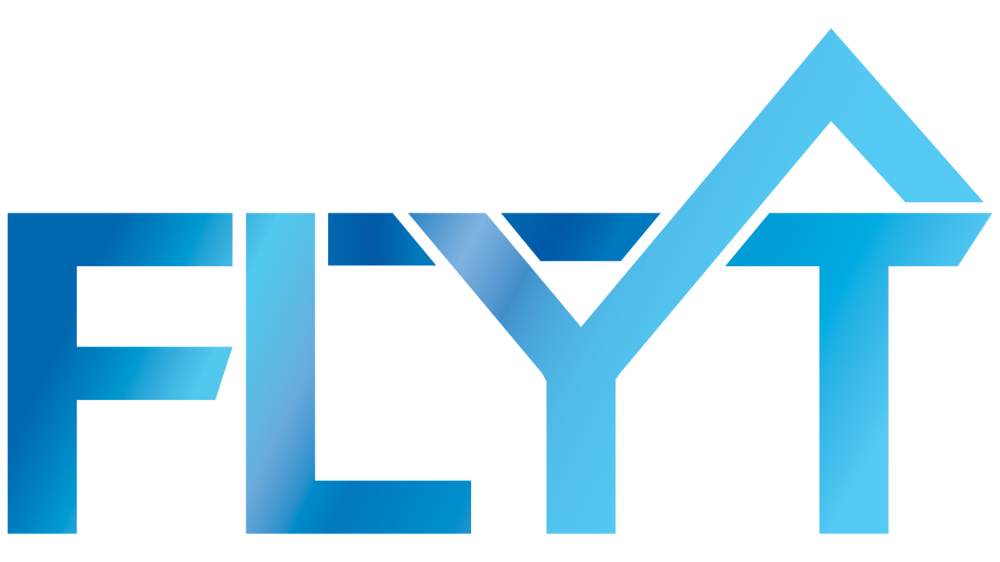Balancing the Burners: Meet John Stauffer - from NCAA All-American, to PhD, to Boston Qualifier
Sep 10, 2025
At FLYT Performance, we believe the pursuit of excellence is rarely linear—it’s a journey fueled by grit, balance, and an unshakable drive to reach new heights. Few athletes embody that spirit more than John Stauffer. From seven-time NCAA National All-American swimmer to PhD candidate, entrepreneur, and now a Boston-qualifying marathoner, his story reflects the resilience, adaptability, and hunger that define the next generation of high-achieving endurance athletes (can we brag here - his last marathon he ran a 2:40🔥).
In this interview, he shares how he juggles the demands of academia, life, and competition while continuing to chase greatness—one disciplined step at a time.
Q: You come from a decorated swimming background—can you share a bit about your time at Denison and what being part of such a competitive NCAA program taught you about yourself?
John: Denison was some of the most impactful years of my life. Growing up as a kid, I was fast but then as everyone started to hit puberty I eventually started to fall behind. By the time freshman year came, I was about 6’0 and 150 pounds. The head coach Gregg Parini told me on my recruiting trip that I am someone who he can work with; a car he can just try to put the biggest engine in over the next 4 years and that’s exactly what he did.
Freshman year I had been hitting personal bests, but I was the 19th man for an 18-person national team roster leaving me gutted. As I stood in the stands watching them win nationals and then receiving a national championship ring that I did not want to accept since I wasn’t on the team, I told myself that I would be on the roster next year. After Gregg told me I had to take it, I opted for an inscription on the inside of my ring saying, “Optimism is the faith that leads to achievement”. That quote really embodies my time at Denison. This program taught me how to put any sort of personal opinions aside and trust the process. The only way to make it on this team if you aren’t the biggest, strongest or fastest is if you want it more than anything. Fast forward a year and you have me making the national team roster and winning national championship. The ring of my sophomore year says, “If you aren’t as hungry as I am, we can’t eat at the same table”. By the time I left Denison at 6’2 180 pounds ranked #1 ranking in the country in the 400IM, 3rd in my two other main events, and a newfound sense of confidence that took me to the next athletic chapter of my life.
Q: What inspired you to shift from triathlon endurance training to focus specifically on marathon running? Was Boston always the goal? Will you go back to triathlon training after your PHD?
John: So far in my post-graduate career, I wear a lot of hats.
PhD Student, Lab Coordinator, Mentor to my Research Assistants, Senior-Capstone Teaching Assistant, Private Swim instructor, Principal and Founder of my own consulting company, Dog dad, competitive marathon runner, and my attempt at a social life.
Triathlon training is simply too much at this point in my career. It is already enough of a battle to get in all running and gym-based workouts for marathon training. For right now, I simply do not have the bandwidth.
Boston was always the goal, but it has evolved to conquering all 6 Major Marathons across the world and I will not consider stopping until I achieve it.
I am not sure about the triathlon. I have always been a 0 or 100 guy and honestly, I have loved really buying into all things running as there are so many rabbit holes of learning within this one discipline; but never say never.
Q: What are you pursuing your PhD in, and what school are you currently attending? How did you decide on that path?
John: The official title of my PhD will be Bio-Behavioral Sciences with a Sports Medicine Concentration from The University of Florida out of Gainesville, Florida.
It is a common thought that I would be working with athletes, but my particular interest is clinical research involving wearable technology to develop more optimal monitoring for people suffering from chronic pain conditions. My dream is to work up the totem pole to become a chief science officer at some progressive medical technology company.
My dad has been a huge influence of mine as he too is in clinical research, but he is involved with pharmaceuticals serving as a chief medical officer as his background is in anesthesiology out of Johns Hopkins. Beyond my dad, clinical research is a lot like puzzles, and I have loved puzzles ever since I was a kid. They have had such an impact in my life that a Rubik’s Cube was the focal point of my PhD personal statement when I was applying for programs.
Q: Balancing high-level training and a demanding PhD program isn’t easy—how do you manage both physical and mental stress loads day to day?
John: It’s not easy, and I would be lying if I said that I didn’t have breaking points so far. They are inevitable with such high goals across multiple disciplines.
However, I think of my life and all the things that go into it as a stove, made up of multiple burners, some at different sizes, all firing at different levels of heat.
The goal of cooking (another love of mine) is to make sure everything on the plate comes out hot at the same time. That requires a lot of attention and adjustments to the burners to ensure nothing gets burnt, or too messy. I treat the elements of my life like different pots and trays. Some things can go in the oven that doesn’t need a lot of attention, then I have two big burners in the front with high-priority items and things on the back that need adjustments every now and then. A constant dance of altering the heat and paying attention to each component individually is the only way that what you are making will lead to a beautiful dish.
Q: Have you found that your background as a collegiate swimmer gives you any advantages or unique challenges as a runner?
John: Advantages: Time management, grit, being alone with your thoughts, accountability, understanding pacing, understanding pain, understanding long term gratification.
Disadvantages: 18 years of my life being in a controlled condition of the water leading to no impact-based strength in my legs, biomechanics, eating and drinking strategies mid race, picking the right shoes, and simply the time it takes to train for a 3-hour race rather than a 4-minute race.
Q: What mindset or mental framework do you lean on when motivation dips, or when training and school both feel overwhelming?
John: The only thing I can tell myself whenever the complaining and doubts come flooding in is that I am choosing to do all of this. I can’t be mad if the only person to blame is myself. Success in these marathons is what I want, and this is part of the deal. Example: July 29th at 7am during 90-degree track workout my head was here --> “A PR in Chicago means 6:00 pace, no exceptions, finish the workout”
Q: What advice would you give to other former collegiate athletes who are trying to juggle a heavy academic or professional load but still crave high-level competition?
John: Sit down and be honest with yourself by asking the question, “is this lifestyle what you want?”
True competitors are either 100% in or 100% out. No exceptions. If you truly want it, there is no option to do anything other than everything that moves you towards your goal.
Q: What have you learned about durability—physically and mentally—through this chapter of your journey, and how has that shaped your current goals moving forward?
John: Every aspect of my life between academics and athletics has been delayed gratification and makes me think of physical and mental durability like its airplane.
So far with all my schooling and not taking any gap years, I still have 2 more years to go making me finish at 28 years old. So far with all my marathon training across almost 4 years, I have done 6 marathons and still haven’t run 1 major yet. My plane will be taking off one day, but right now as I am still sitting on the runway, I am going to make sure I get every single last drop of fuel into the tank before I do; that fuel is supplied by the day-to-day challenges that test my body and my mind.
Q: How has Coach Amy Javens / FLYT Performance coaching supported your progression as both an athlete and a PhD student? What sets this coaching experience apart?
Q: If somehow miraculously I was offered some fancy contract with a professional marathon team, but I would have to switch coaches, I would turn them down. I would be nothing without Amy.
I have been blessed with coaches that I can all remember vividly while swimming growing up, all helping me build bricks for my mindset. However, what sets Amy apart is that she is now working with me as an adult, with real day-to-day challenges. The adaptability of her coaching, perfectly molding it to the fluid nature of my career is something that I don’t think most coaches can do. Her experience as an professional athlete herself but also being a mom makes her real, as she doesn’t lose sight of her compassion and understanding when it is needed.
FLYT has made the framework of my athletic drive and my academic career more structured than ever, allowing me to fully commit to achieving my goals at the highest possible level.
John’s journey reminds us that success doesn’t come from talent alone—it’s built through discipline, adaptability, and the courage to keep pushing when the burners of life are all firing at once. His ability to balance a demanding academic career while training at a world-class level is exactly the type of athlete we love to work with at FLYT Performance: driven, focused, and unwilling to settle for less than their best. Stories like his highlight what’s possible when coaching meets commitment, and we’re proud to support him every step of the way as he takes on the world stage, one marathon—and one milestone—at a time.
Ready To Start Your Own Journey?
Connect with Coach Amy!
